Israeli free trade pact to build on existing ties
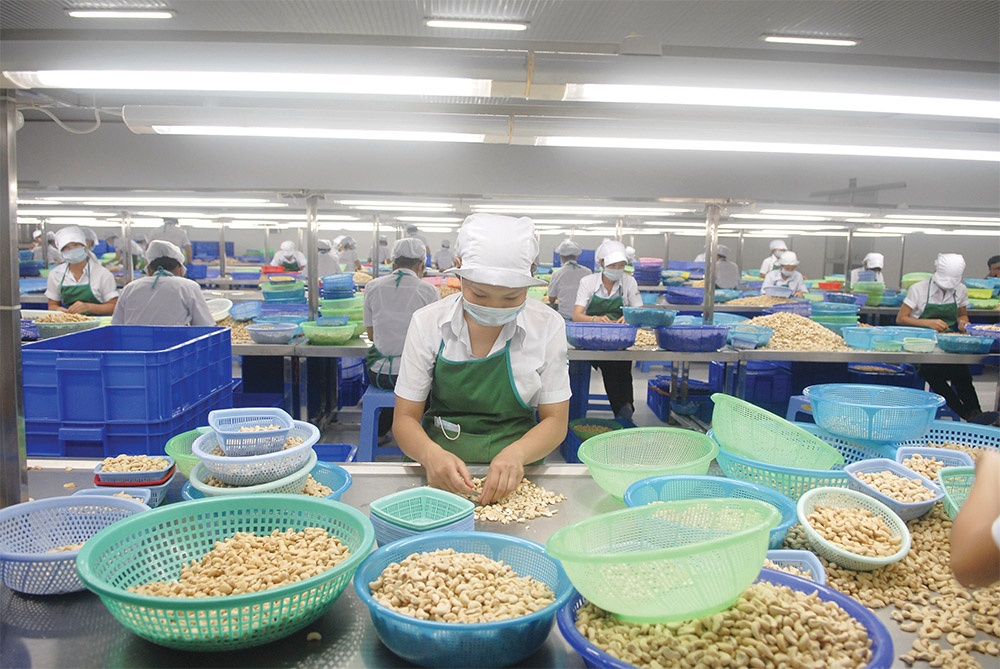 |
| Israeli free trade pact to build on existing ties, illustration photo |
The Ministry of Industry and Trade (MoIT) is now completing the final procedures of the ratification dossier of the Vietnam-Israel Free Trade Agreement (VIFTA). The dossier will be soon submitted to the government for consideration in Q1 before the National Assembly can ratify it. The same move is also expected to be taken by Israel soon.
The deal was clinched in July last year and will take effect right after ratification of both sides.
“At present, the MoIT is implementing internal procedures as per regulation carved in the Law on International Treaty 2016, and then submitting it to the government for adoption before putting it into force in early 2024,” the MoIT said. “We will formulate and carry out different activities to spread the content and commitments of the VIFTA to the business community.”
The agreement includes 15 chapters and a number of appendices attached to the chapters with basic contents such as trade in goods, services, rules of origin, technical barriers to trade, and other provisions including sanitary and phytosanitary measures, customs, trade remedies, government procurement, legal and institutional.
The deal will ultimately remove duties on at least 86 per cent of Vietnamese products and 93 per cent of Israeli products. It is also expected to be a lever to help reinforce the bilateral ties between the two economies in investment, services, digital transformation, and technology.
The VIFTA aims to remove hurdles to most trade activities such as tariffs, import quotas, other non-tariff barriers. After passing the trade deal, Vietnam and Israel will soon enact action programmes with concrete schemes on tariff reduction and removal under roadmaps.
The two countries have exchanged their requirements and offerings on opening doors to their respective goods markets. They have also determined their respective expectations on the levels and roadmaps of tariff reductions, especially for the groups of goods that can bring about big benefits and are their own competitive advantages.
Vietnam exports as many as 70 items of all kinds to Israel on an annual basis. The staple goods exported include electronics and mobile phones and their spare parts; agro-forestry-fishery products; garments and textiles; footwear; machinery; and wooden products. Meanwhile, for Israel, they include refined oil and petrol, pharmaceutical products, machinery and equipment, medical equipment, computer soft and hardware, farm produce, and chemicals.
Figures from the MoIT indicated that two-way trade turnover rose from $1.2 billion in 2019 to about $2.2 billion in 2022. In the first 10 months of 2023, Vietnam’s total exports to Israel hit $553 million, and its imports to Israel reached $1.82 billion. It is expected that the two-way trade value will climb to as much as $3 billion this year or in 2025.
Israel currently has 42 valid projects in Vietnam, registered at $151.5 million.
According to law firm Dezan Shira & Associates, the future of trade between Vietnam and Israel is very promising for enterprises and consumers in both nations.
“Vietnam and Israel have complementary economies, with Vietnam being a major producer of agricultural and manufacturing products, while Israel is a leader in technology, research and development, and innovation,” Dezan Shira & Associates said.
Over the years, Vietnam and Israel have established robust bilateral relations, marked by an increasing number of high-level visits and exchanges between the two countries.
“Overall, the future of trade between Vietnam and Israel looks bright, with significant opportunities for foreign investors to tap into these dynamic and growing markets. As both countries continue to strengthen their economic ties, businesses can expect to see continued growth and success in the years to come,” the law firm continued.
The firm sees great cooperation potential in some sectors to be induced by the VIFTA, including agriculture, footwear, and electronics, among others.
At present, Vietnam and Israel are strongly riveting ties in high technology, agriculture, and more.
For example, Vietnam’s TH Group is expanding its cooperation with Israeli businesses in its projects worth billions of US dollars to produce milk and agricultural products.
Israel’s Afimilk is providing consultancy, an automatic milking system, and cow management software for TH’s $1.2 billion high-tech centralised dairy farming and processing project in the central province of Nghe An. Meanwhile, Israeli company Amiad provides water treatment solutions, while Lachish and One1 also provide feed mixing software and equipment.
This project has received a fund worth $100 million from Israel’s government in order to import machinery, technology, and cows.
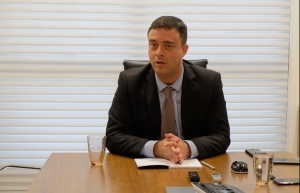 | Israeli Ambassador has faith in Vietnam organising elections successfully Israeli Ambassador to Vietnam Nadav Eshcar has voiced his belief that Vietnam will effectively and safely hold the upcoming elections of deputies to the 15th National Assembly and members of all-level People’s Councils in the face of unpredictable developments surrounding the COVID-19 pandemic. |
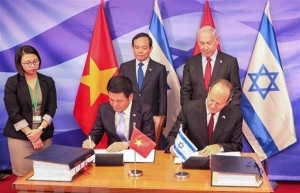 | FTA opens up opportunities in Israeli market: experts The Vietnam-Israel Free Trade Agreement, which was signed on July 26 after seven years of negotiations, would create a conducive atmosphere for the export of Vietnamese products to Israel, according to many experts. |
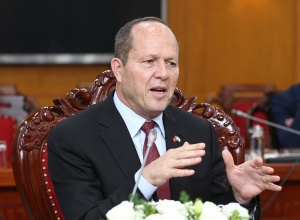 | Israeli Economic Minister's visit to Vietnam spurs investment fund proposal During his visit on August 14-16, Israeli Minister of Economy and Industry Nir Barkat put forth a proposal for the establishment of a collaborative fund aimed at facilitating investment in Vietnam, emphasising its vital role in ensuring the success of Israeli businesses as they enter the Vietnamese market. |
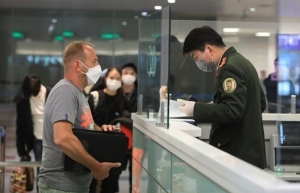 | Israeli people highly evaluate Vietnam's visa reform policy Israeli people and businesses have welcomed and highly valued Vietnam’s new visa policy, affirming that the country is taking steps to reform its procedures in order to make it easier for foreigners to vacation and do business in the Southeast Asian nation. |
What the stars mean:
★ Poor ★ ★ Promising ★★★ Good ★★★★ Very good ★★★★★ Exceptional
Related Contents
Latest News
More News
- Site clearance work launched for Dung Quat refinery upgrade (February 04, 2026 | 18:06)
- Masan High-Tech Materials reports profit: a view from Nui Phao mine (February 04, 2026 | 16:13)
- Hermes joins Long Thanh cargo terminal development (February 04, 2026 | 15:59)
- SCG enhances production and distribution in Vietnam (February 04, 2026 | 08:00)
- UNIVACCO strengthens Asia expansion with Vietnam facility (February 03, 2026 | 08:00)
- Cai Mep Ha Port project wins approval with $1.95bn investment (February 02, 2026 | 16:17)
- Repositioning Vietnam in Asia’s manufacturing race (February 02, 2026 | 16:00)
- Manufacturing growth remains solid in early 2026 (February 02, 2026 | 15:28)
- Navigating venture capital trends across the continent (February 02, 2026 | 14:00)
- Motivations to achieve high growth (February 02, 2026 | 11:00)

 Tag:
Tag:


















 Mobile Version
Mobile Version